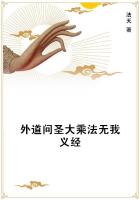Mademoiselle de Pen-Hoel treated Calyste as if she felt that her intentions gave her certain rights over him; her plans seemed to authorize a supervision. Not that her ideas were strict in the matter of gallantry, for she had, in fact, the usual indulgence of the old women of the old school, but she held in horror the modern ways of revolutionary morals. Calyste, who might have gained in her estimation by a few adventures with Breton girls, would have lost it considerably had she seen him entangled in what she called innovations. She might have disinterred a little gold to pay for the results of a love-affair, but if Calyste had driven a tilbury or talked of a visit to Paris she would have thought him dissipated, and declared him a spendthrift. Impossible to say what she might not have done had she found him reading novels or an impious newspaper. To her, novel ideas meant the overthrow of succession of crops, ruin under the name of improvements and methods; in short, mortgaged lands as the inevitable result of experiments. To her, prudence was the true method of ****** your fortune; good management consisted in filling your granaries with wheat, rye, and flax, and waiting for a rise at the risk of being called a monopolist, and clinging to those grain-sacks obstinately. By singular chance she had often made lucky sales which confirmed her principles. She was thought to be maliciously clever, but in fact she was not quick-witted; on the other hand, being as methodical as a Dutchman, prudent as a cat, and persistent as a priest, those qualities in a region of routine like Brittany were, practically, the equivalent of intellect.
"Will Monsieur du Halga join us this evening?" asked Mademoiselle de Pen-Hoel, taking off her knitted mittens after the usual exchange of greetings.
"Yes, mademoiselle; I met him taking his dog to walk on the mall,"replied the rector.
"Ha! then our /mouche/ will be lively to-night. Last evening we were only four."At the word /mouche/ the rector rose and took from a drawer in one of the tall chests a small round basket made of fine osier, a pile of ivory counters yellow as a Turkish pipe after twenty years' usage, and a pack of cards as greasy as those of the custom-house officers at Saint-Nazaire, who change them only once in two weeks. These the abbe brought to the table, arranging the proper number of counters before each player, and putting the basket in the centre of the table beside the lamp, with infantine eagerness, and the manner of a man accustomed to perform this little service.
A knock at the outer gate given firmly in military fashion echoed through the stillness of the ancient mansion. Mademoiselle de Pen-Hoel's page went gravely to open the door, and presently the long, lean, methodically-clothed person of the Chevalier du Halga, former flag-captain to Admiral de Kergarouet, defined itself in black on the penumbra of the portico.
"Welcome, chevalier!" cried Mademoiselle de Pen-Hoel.
"The altar is raised," said the abbe.
The chevalier was a man in poor health, who wore flannel for his rheumatism, a black-silk skull-cap to protect his head from fog, and a spencer to guard his precious chest from the sudden gusts which freshen the atmosphere of Guerande. He always went armed with a gold-headed cane to drive away the dogs who paid untimely court to a favorite little ***** who usually accompanied him. This man, fussy as a fine lady, worried by the slightest /contretemps/, speaking low to spare his voice, had been in his early days one of the most intrepid and most competent officers of the old navy. He had won the confidence of de Suffren in the Indian Ocean, and the friendship of the Comte de Portenduere. His splendid conduct while flag-captain to Admiral Kergarouet was written in visible letters on his scarred face. To see him now no one would have imagined the voice that ruled the storm, the eye that compassed the sea, the courage, indomitable, of the Breton sailor.
The chevalier never smoked, never swore; he was gentle and tranquil as a girl, as much concerned about his little dog Thisbe and her caprices as though he were an elderly dowager. In this way he gave a high idea of his departed gallantry, but he never so much as alluded to the deeds of surpassing bravery which had astonished the doughty old admiral, Comte d'Estaing. Though his manner was that of an invalid, and he walked as if stepping on eggs and complained about the sharpness of the wind or the heat of the sun, or the dampness of the misty atmosphere, he exhibited a set of the whitest teeth in the reddest of gums,--a fact reassuring as to his maladies, which were, however, rather expensive, consisting as they did of four daily meals of monastic amplitude. His bodily frame, like that of the baron, was bony, and indestructibly strong, and covered with a parchment glued to his bones as the skin of an Arab horse on the muscles which shine in the sun. His skin retained the tawny color it received in India, whence, however, he did not bring back either facts or ideas. He had emigrated with the rest of his friends, lost his property, and was now ending his days with the cross of Saint-Louis and a pension of two thousand francs, as the legal reward of his services, paid from the fund of the Invalides de la Marine. The slight hypochondria which made him invent his imaginary ills is easily explained by his actual suffering during the emigration. He served in the Russian navy until the day when the Emperor Alexander ordered him to be employed against France; he then resigned and went to live at Odessa, near the Duc de Richelieu, with whom he returned to France. It was the duke who obtained for this glorious relic of the old Breton navy the pension which enabled him to live. On the death of Louis XVIII. he returned to Guerande, and became, after a while, mayor of the city.
The rector, the chevalier, and Mademoiselle de Pen-Hoel had regularly passed their evenings for the last fifteen years at the hotel de Guenic, where the other noble personages of the neighborhood also came. It will be readily understood that the du Guenics were at the head of the faubourg Saint-Germain of the old Breton province, where no member of the new administration sent down by the government was ever allowed to penetrate. For the last six years the rector coughed when he came to the crucial words, /Domine, salvum fac regem/.
Politics were still at that point in Guerande.















